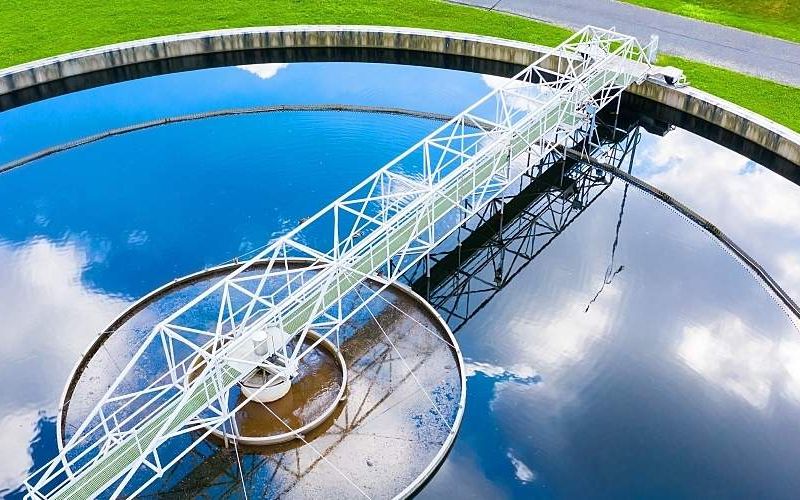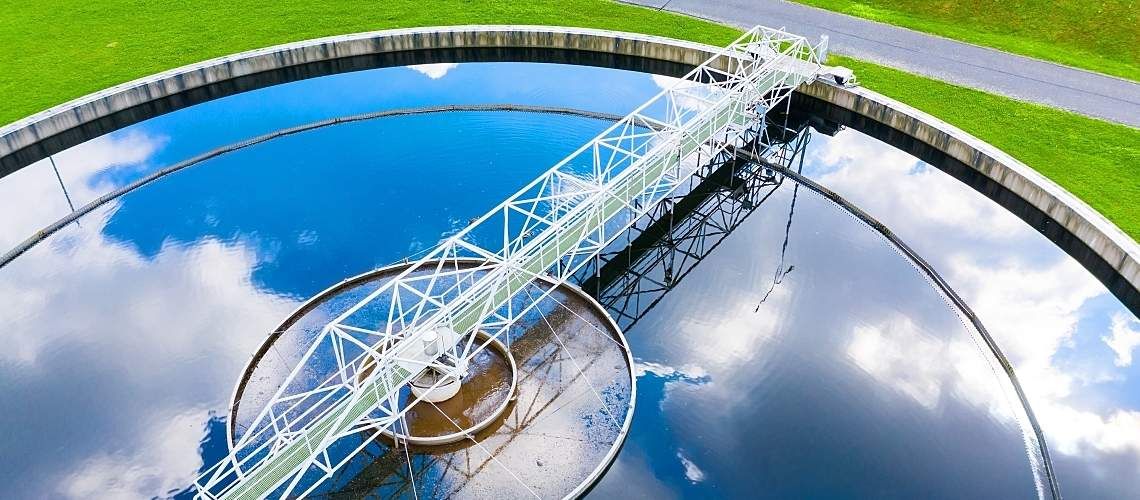New Research Boosts Sewage to Biogas Conversion


The process for turning sewage sludge into biogas for electricity or renewable natural gas has been around for years, but the yield remains fairly low. Now, researchers from Washington State University (WSU) Tri-Cities have a way to potentially produce 98% more methane from biosolids than current practices.
Rather than overhauling the existing process, the WSU team, led by professor Birgitte Ahring, added a pretreatment step to help the sludge biodegrade faster. They've tested it out with the City of Walla Walla.
More than 16,000 municipal wastewater treatment facilities operate throughout the United States, according to the U.S. Environmental Protection Agency. What the researchers in Washington discovered could help more of them transition to a circular economy, where "waste" becomes a valuable resource that doesn't actually get wasted.
Converting Biosolids from Wastewater
Colloquially called "poo power" or "poop power," converting biosolids from wastewater into biogas is already done by municipalities worldwide, which often use the resulting electricity to operate their wastewater treatment plants.
Although the technologies may vary slightly, essentially, the closed-system process takes biosolids separated from wastewater and uses anaerobic digestion to break them down. This creates an end-product called digestate—which can be used as a fertilizer or soil enhancement—and biogas that mainly contains methane plus carbon dioxide, hydrogen sulfide, water vapor, and other gases. Once biogas is processed, end uses include electricity generation, heating, fuel for vehicles, and renewable natural gas.
Examples of these systems range from digesters in Urumqi, China, to a "pressure cooker" system in Washington, D.C. In 2016, Aarhus, Denmark, became the first city in the world to rely only on biogas created from household wastewater to provide fresh water, New Scientist reported at the time. Severn Trent Water Limited in the United Kingdom creates enough energy from sewage in a year to power the equivalent of 50,000 homes. The water company, which serves 4.8 million customers, has six wastewater treatment plants that generate more energy than the facilities use.
Wastewater treatment by itself is an incredibly energy-intensive process. So why doesn't every plant generate electricity from sewage? Experts from the Energy Systems Division at Argonne National Laboratory identified several key hurdles in the journal Renewable and Sustainable Energy Systems. "Some of the critical challenges to the economics of digester operations are the slow rate of biogas generation, the low energy content of the biogas, and the costs to upgrade the biogas," they wrote.
Rethinking the Way We Process Sludge
Traditional anaerobic digestion usually only reduces biosolids by around 50%, the U.S. Department of Energy (DOE) Bioenergy Technologies Office pointed out. However, since solid waste still has enormous potential as a renewable fuel feedstock, the agency is funding research to address the challenges. At WSU, Ahring received a $2.5 million DOE grant for that purpose.
"What DOE was calling for was a rethinking of the way we process sewage sludge today, so that the process becomes far more efficient and economically viable," the biological systems engineering and chemical engineering professor told a WSU publication.
Ahring and her colleagues tested a pretreatment process called advanced wet oxidation and steam explosion—AWOEx for short—on digested sewage sludge from the Walla Walla Wastewater Treatment Plant. AWOEx involves applying high-pressure steam containing oxygen. This step breaks down sewage sludge so well that the researchers converted at least 85% of the material to biogas, compared with the current rate of 50%. That, in turn, produced 98% more methane. The researchers published their findings in the journal Waste Management.
AWOEx has the potential to improve the efficiency of wastewater treatment plants like the one in Walla Walla that use anaerobic digestion to make biogas, according to the researchers. Walla Walla's utility engineer recently told the Tri-City Herald that the city has plans to incorporate the WSU technology into designs for a new digester project.
